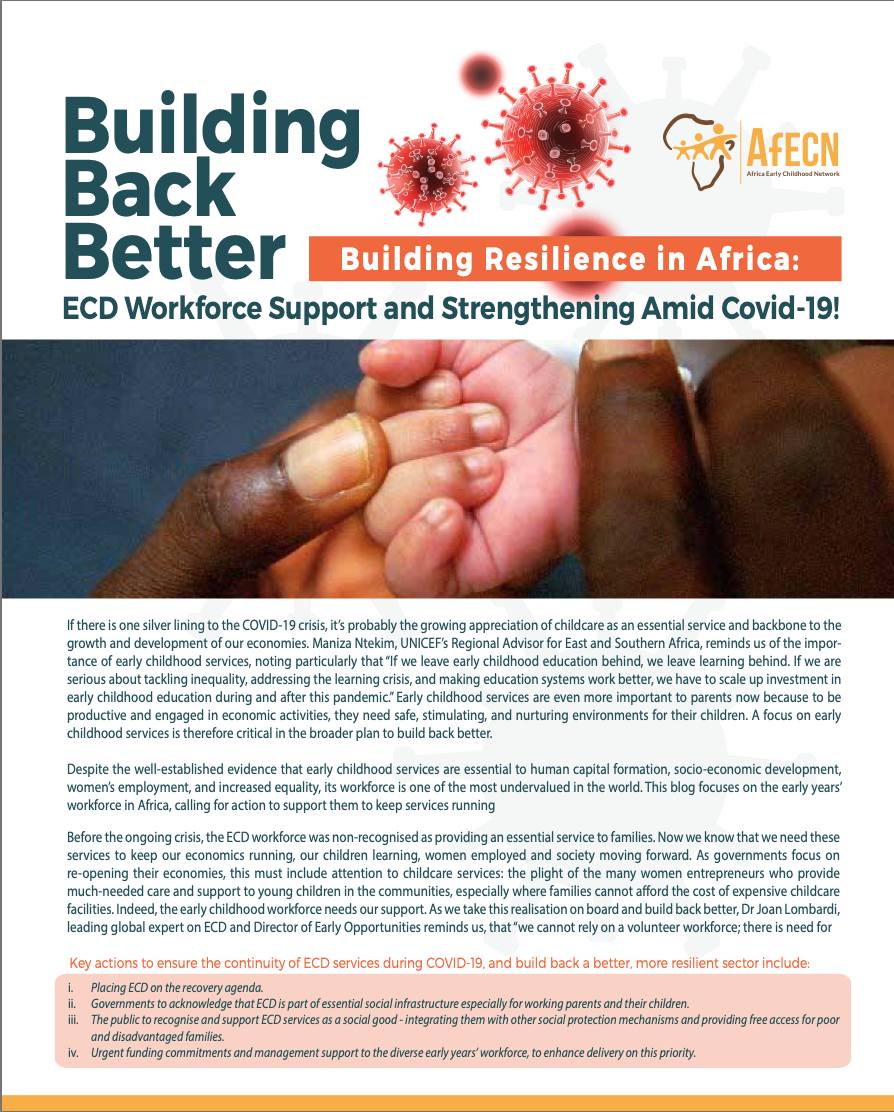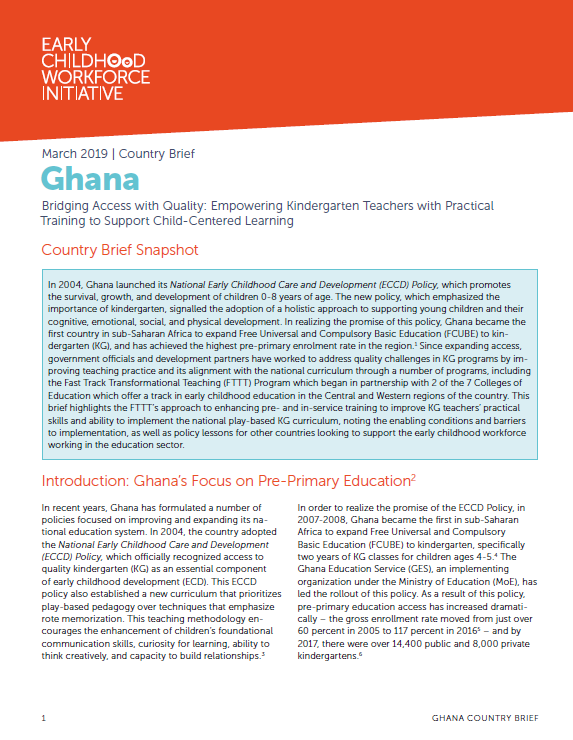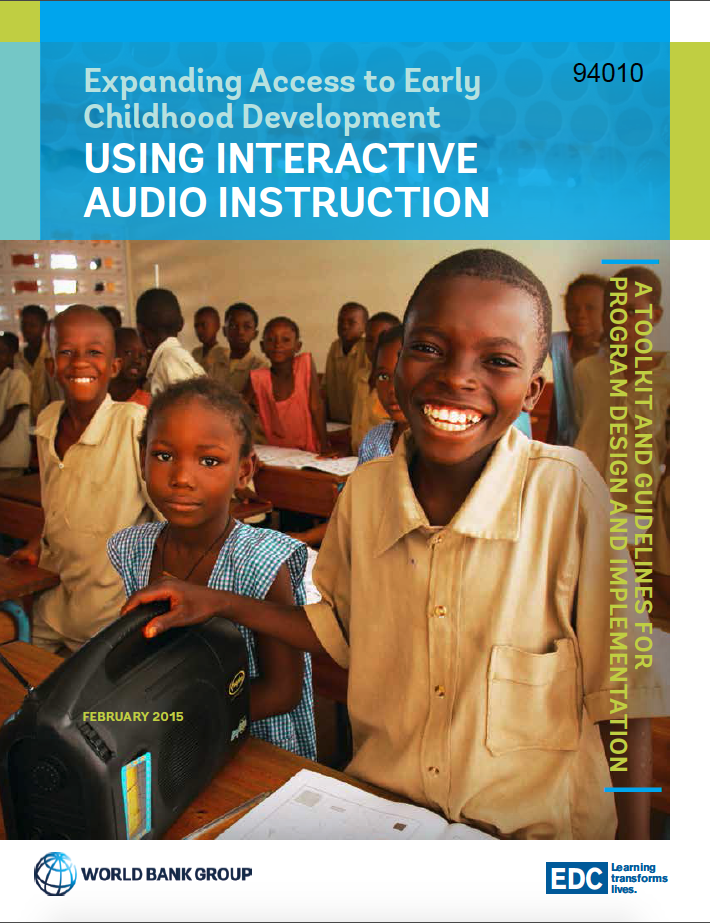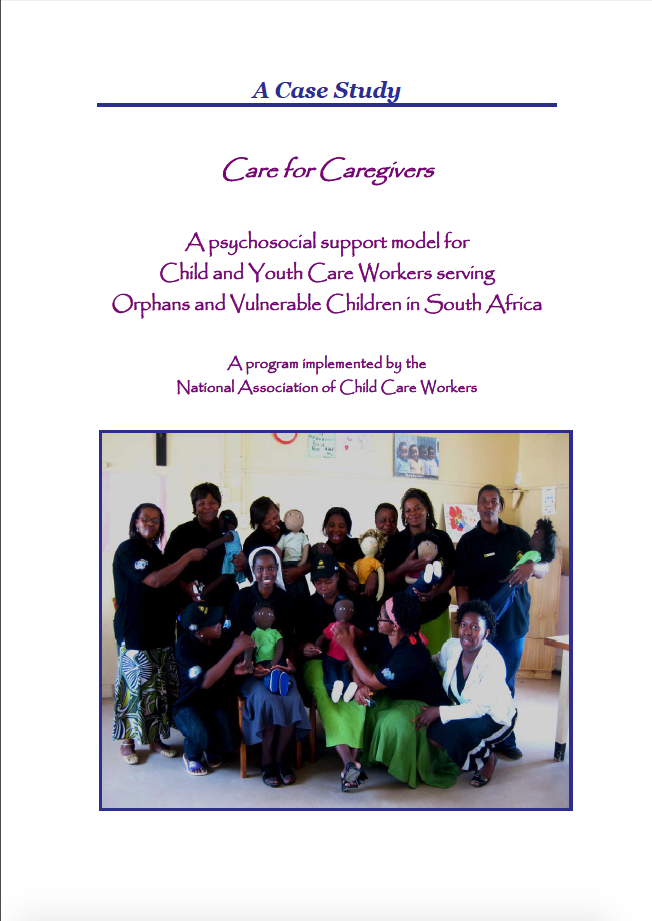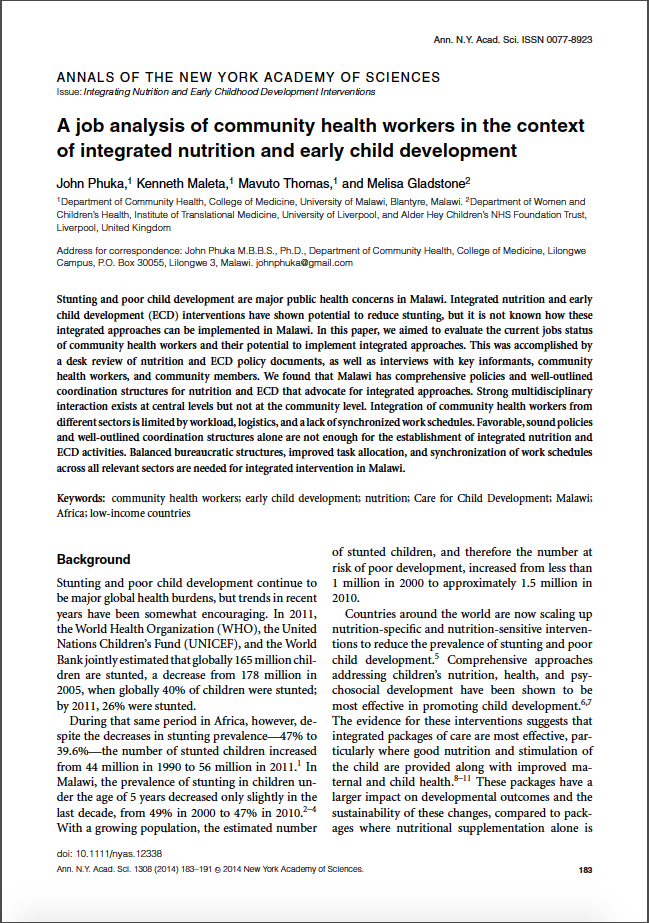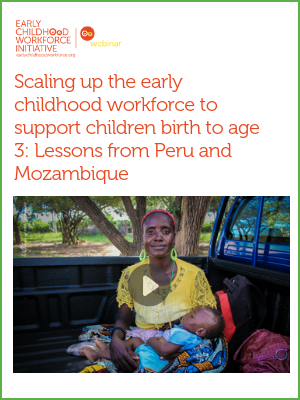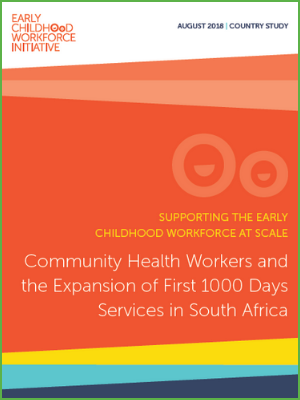Caring for the Caregiver Implementer's Guide
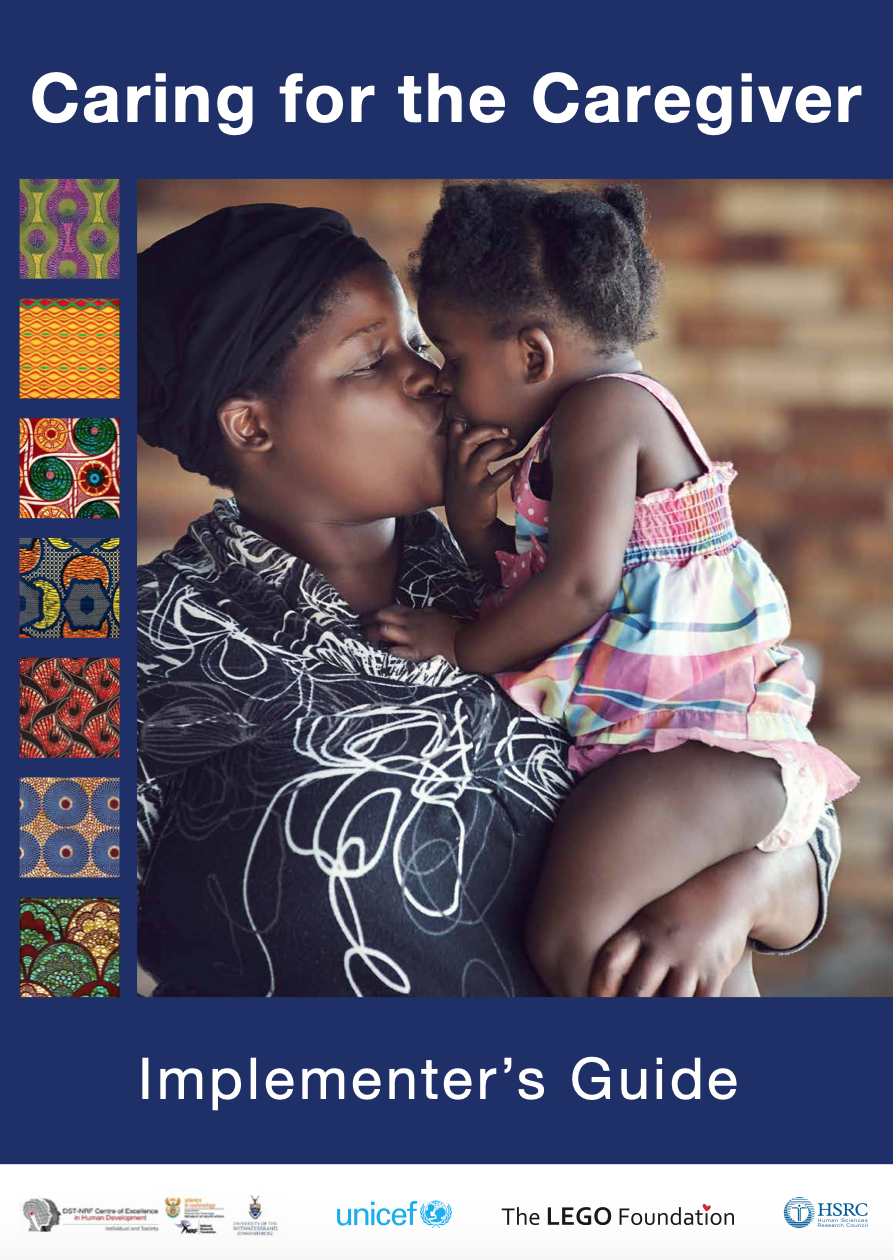
The success of a child’s healthy development is largely dependent on their primary caregiver’s capacity. The 2016 Lancet Early Childhood Development Series1 highlights that efforts to support children are not likely to bear success unless they concurrently provide support for the caregivers upon whom children depend for care.
Many barriers exist to caregiving including that:
- Caregivers may lack the physical, psychological and social capacity to care for their child.
- Highly adverse conditions may introduce threats to caregiver’s well-being and their resources for caregiving.
In responding to these barriers, there is also recognition that frontline workers, who are often community volunteers and caregivers themselves, are not equipped with adequate skills to enable them to support caregiver needs.
Caring for the Caregiver (CFC) is a foundational training module that is designed to address these needs, and to complement existing maternal and child health programmes including the UNICEF/WHO Care for Child Development (CCD) Package and the UNICEF Infant and Young Child Feeding (IYCF) Package. CFC can also be utilised as a foundational course for other sector programs whose success is dependent on caregiver and family capacity (e.g. health promotion programmes such as WASH or child protection programmes).
CFC training translates well-established evidence on how to support emotional well-being and mental health, presenting these in practical activities which encourage self-care, family engagement and social support. The training package provides curriculum for training frontline workers to address barriers to responsive caregiving and it provides supporting implementation materials for counselling caregivers.
CFC was developed for the UNICEF West and Central Africa Regional Office (WCARO) by expert consultants, with a series of consultations and pilot training activities in two countries: Mali and Sierra Leone.
2019
www.unicef.org



